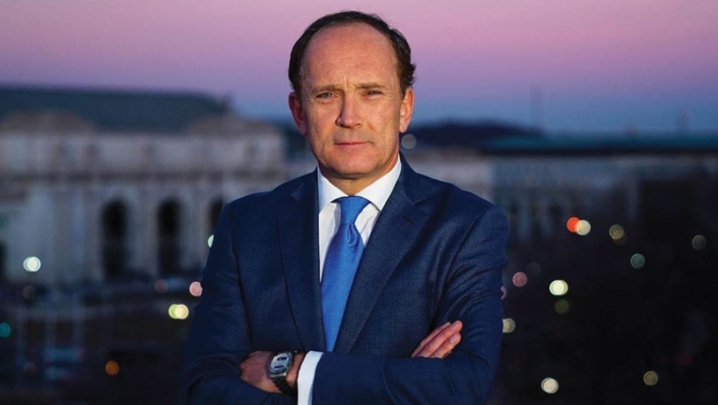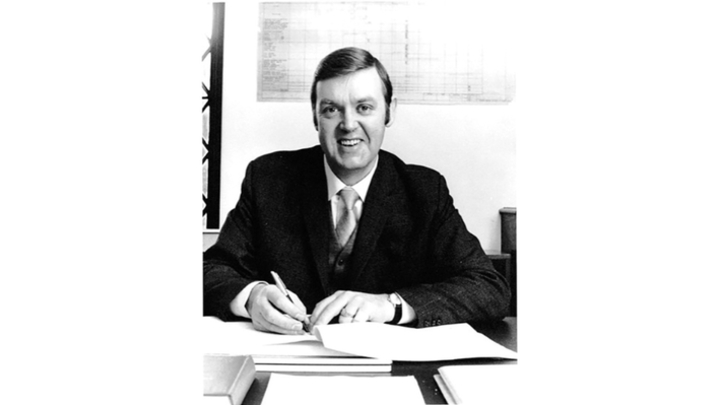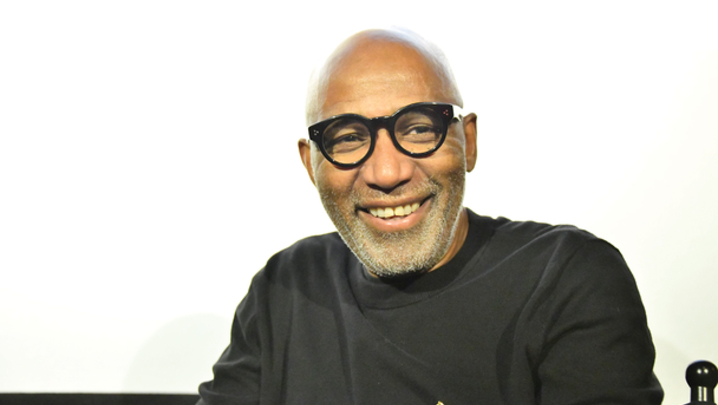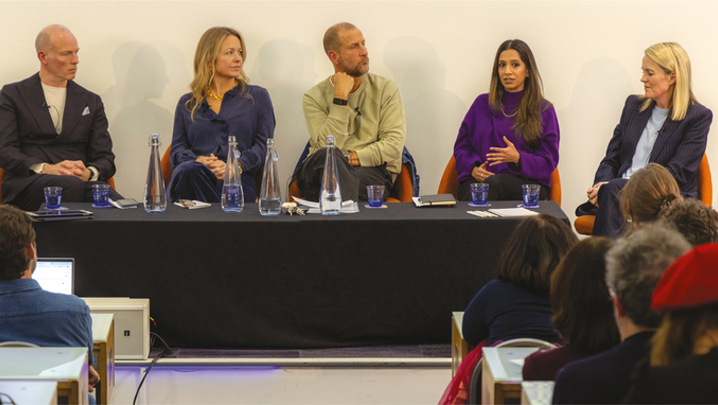What would life be like for BBC Productions and its rivals if it was cut loose as a commercial studio? Tara Conlan finds out
Why [should the BBC] be radical in an age when attacks from sections of the press are more vicious and more personal than ever before; when the BBC’s commercial competitors are more ruthless than they have ever been; and when some politicians and commentators seem more interested in quick headlines than in trying to understand the real issues?
“The answer, of course, is that we have no option. I believe the stark choice facing the BBC today is that we either change or we simply manage decline gracefully.”
So said former Director-General Greg Dyke in his MacTaggart Lecture in 2000.
But it could easily have been said today by the current Director-General, Tony Hall. His proposal for protecting the future of BBC Production is to allow it to pitch to, and make programmes for, its competitors.
In return, independents will be able to pitch for any BBC slots.
In effect, he wants to make BBC Production into a mega-indie that could end up as a commercial entity, perhaps sitting within BBC Worldwide.
In some ways Hall’s plan is a continuation of former boss John Birt’s “Producer Choice”– Birt formally separated production and commissioning in the BBC.
That was largely reversed by Dyke, but now the wheel has turned again.
As Hall puts it: “We are going to go further than we have ever done before in opening the BBC to more competition. A competition revolution. ‘Compete or Compare’ – that is our strategy.”
However, it is not a new idea. According to former BBC Vision Chief Creative Officer and founder of WeCreate Associates Pat Younge, it has been floating round since Hall’s predecessors, George Entwistle and Mark Thompson, were at the BBC.
That marries with the fact that in March 2012 executives were understood to be looking at how they might put shows such as EastEnders into some kind of commercial entity. The BBC denied the story at the time. Now it is publicly backing the plan. But why now?
There are a number of reasons. First, as Director of Television Danny Cohen said last December, the BBC is trying to solve the conundrum of how to attract talent to the corporation.
At the moment it cannot award the kind of equity stakes or salaries that the commercial sector does – without being savaged by competitors and critics in the press.
Then there is the threat posed by the consolidation of the independent sector, as British producers are snapped up by US companies such as Discovery, Liberty and Viacom.
I hope it doesn’t backfire [on] the breadth and quality of people in the BBC and quality of programmes commissioned
Add to this the millions being pumped into drama by internet television services such as Netflix – action that the BBC would not mind a piece of.
Finally, it is no coincidence that Hall’s announcement comes in the run-up to Charter renewal. Such a fundamental change in the BBC’s make-up would need to be written into the next Royal Charter.
Faced with the prospect of a declining licence fee and politicians wanting to trim the corporation’s funding – or even end the traditional way of paying for the BBC – it makes strategic sense to propose an alternative. A commercial production wing could generate additional revenue for the BBC.
However, remuneration will be a key issue, notes Yahoo’s Senior Vice-President for Europe, the Middle East and Africa, Dawn Airey: “The best people will have a ball. And are they going to be remunerated for bringing in business?”
But she warns of “unintended consequences” such that “some people who’ve become good at pitching may think, ‘I’ll go and do it myself.’
“This is about the BBC getting more involved in the marketplace and hoping to bring in additional revenues.”
“I think it is a commercial and political decision... this is quite overt.”
She points out that in the US “the big commercial broadcasters there have production arms that compete for their own broadcasters’ slots and for everyone else’s as well,” but adds: “I hope it doesn’t backfire [on] the breadth and quality of people in the BBC and quality of programmes commissioned.”
BBC executives seem to accept that a “mega-indie” production studio would have to be separate from the publicly funded heart of the corporation, perhaps in the form of a wholly owned subsidiary.
But Bectu General Secretary Gerry Morrissey says the plan could hit a stumbling block: some staff are not keen on the idea of being transferred to a commercial entity, because they joined the BBC to make public service programming.
When he told the BBC this, executives were taken aback, he recounts: “I think this was because they had been talking to people in drama, who are keener than people in, say, factual.”
Drama production staff might be more amenable thanks to the commercial success of dramas such as EastEnders and Doctor Who.
Yet despite the corporation’s reputation for drama, some of its most acclaimed shows, such as Sherlock and Line of Duty, are made by independents.
A BBC Trust review last year revealed that indies won 99% of available drama commissioning hours in the year to the end of March 2012.
Morrissey says the BBC will have “a job convincing us this is not just a transition... [and] that the bits nobody wants will come back into the BBC and the bits that are valuable will be sold off.”
It is no coincidence that Hall’s announcement comes in the run-up to Charter renewal
Younge counters: “The public just wants the best shows, that’s the fundamental issue. The fundamental reality is that the current system is broken.”
Currently, inhouse programme-makers are guaranteed 50% of commissioning; 25% goes to “qualifying indies” (those not owned by rival broadcasters); and the rest is put into the Window of Creative Competition (WoCC), which is up for grabs by inhouse or independent producers.
Younge argues that “the WoCC is not about creative competition” any more. Moreover, he thinks the new entity would “probably have to be a stand-alone company, but could be part of BBC Worldwide”.
Pact Chief Executive John McVay, unsurprisingly, welcomes Hall’s proposal, but says that opening up all slots to the independent sector should not be conditional on a stand-alone BBC Production outfit being allowed to pitch to everyone.
He says that Pact, which published its own report into Hall’s plans at the Edinburgh Television Festival, believes “this opening-up will liberate the BBC”.
CentreForum trustee Charles Brand is co-writing a report on the subject for the think tank. Brand, who is also a former Managing Director of Tiger Aspect, thinks arts and religion could prosper in a commercial production wing just as much as drama. Hit show The Monastery, which he executive produced, demonstrates the potential, he believes.
Inhouse producers would also have the option to redevelop shows that had been rejected by BBC channels to sell them elsewhere.
“It might be the making of BBC Production and it becomes a more exciting place to work,” says Brand. “It could also make it easier for bonuses to be paid and to avoid the Daily Mail outrage stories.”
He believes it could encourage BBC producers to make more original shows, rather than the “big, standard commissions” that get awarded to inhouse.
He recognises the new entity will set off with a big order book of existing commissions, but is likely to have to slim down its workforce.
One upside, argues Brand, is that it could clarify how much BBC inhouse production services cost. He has “been trying to get to the bottom” of this issue but “it’s almost all anecdotal... either the BBC is being secretive or it’s because it doesn’t know itself”.
Brand says that indies with BBC commissions wanting to hire corporation production staff have told him that this has cost them around 25% more than using freelancers for the same roles. It is not clear whether this is down to the BBC’s inhouse production department trying to make money from the commission.
Brand insists: “I genuinely would love to see BBC Production do well. My instinctive view is that BBC Worldwide is the place for it. It has its own production arm internationally and has a 25% stake in lots of indies.”
Plus, if it were to lose money, Worldwide has “financial flex” to cope with that.
One area that Brand says nobody has really got their head around yet is that “the move to Salford, Cardiff and Glasgow has taken on a political role – the BBC has been told not to be so metropolitan. That comes at a cost.”
He reckons that, whatever form the new outfit takes, it will have to be situated away from BBC commissioners to prove it is genuinely separate.
Some production staff have complained about having to move out of Television Centre to New Broadcasting House; they say there is not enough room for them and it takes them away from the big TVC studios, which are being refurbished.
Meanwhile, BBC Worldwide is due to begin moving back into refurbished offices within the TVC complex in January.
If Hall’s plan comes off and production does get annexed by Worldwide, some of those producers may be granted their wish to return to TVC, after all. For Hall’s proposal to work it needs staff, the industry and politicians on side.
A “BBC Studios” mega-indie could entice the next generation of creative minds to join the BBC rather than Amazon.
And, in the meantime, it will focus the minds of those politicians wanting to cut the licence fee – it will force them to ponder how much they really want the BBC to become more commercial.







